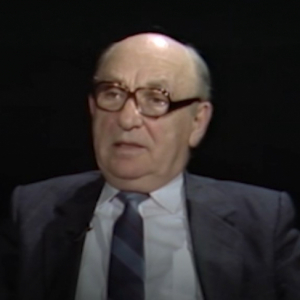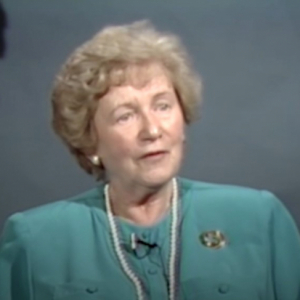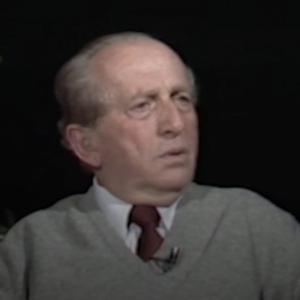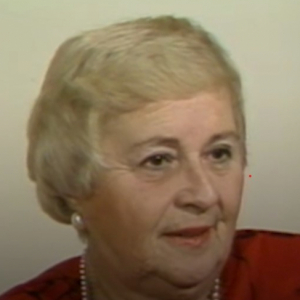Judy Schachter
Judy Schachter describes a dangerous experience while in hiding.
Judy Schachter, born in 1936, grew up in Humenné, Czechoslovakia with her parents, and her father’s extended family in a long house that opened to their grocery store. Judy’s father was a merchant and owned and well-established hide business. Judy fondly remembers growing up in a large family with her father’s unmarried siblings and grandparents, preparing meals and eating together.
Judy’s family tried to protect her from the horrors of the war. But in early 1941, the Nazi puppet regime in control of Humenné began roundups of Jews and enforced segregation laws. Single people were rounded up first and Jewish people were not allowed to marry. Judy remembers her aunt wedding her uncle in secret with her aunt wearing a business suit to avoid suspicion. Adults were required to wear yellow armbands. Elderly men and women, including Judy’s grandparents, were moved to collection points and later to concentration camps. The family’s jewelry was seized, although after the war, she was lucky to be able to retrieve her grandfather’s gift, now a family talisman, a gold Star of David. The family had to give up, not only their business, but also their home to a gentile. As the Russian front was moving closer, they were forced to leave Humenné altogether, arriving in the village, Kvacany, in Central Slovakia. In the fall of 1944 as German soldiers began shelling the villages suspected of harboring Russian Gorillas, the family fled to the nearby Tatra mountains.
Judy and her parents, along with other Jewish families, managed to survive through the few compassionate and brave villagers bringing food up the hill when they could. At one time, Russian partisans took their scarce provisions at gunpoint. They survived the winter enduring unhygienic conditions wearing all they had. The one time Judy went down the hill with her mother, they had to hide in a box at a villager’s barn to escape a German search.
Towards March 1945, with liberation not yet in sight, the family began crossing the mountain range, over winter snow, cutting through German held territory towards the liberated side of the Chabanec mountains. Along the way, Judy saw bodies of Jewish people who had frozen to death trying to cross only a few hours earlier. Judy and her parents managed to reach the refuge of Russian territory and stayed there for a few days before returning to Humenné. From 1945, the family attempted to leave Humenné with difficulty, and finally in 1949, they managed to move to Canada.
Judy and her husband now reside in Toronto. She has a daughter, Aviva, named after the friend Judy lost as they moved out of Humenné. Judy also has a son Ashwin, along with four grandchildren. Her maternal grandparents and her uncle perished in Aushwitz. Her full testimony is part of the Canadian Collection of Holocaust survivor testimonies. It is preserved in the USC Shoah Foundation’s Visual History Archive and accessible through the Ekstein Library.
Judy SchachterI wore those clothes for months. They never came off. We had lice and we were filthy. I guess what saved us was the cold.
Testimony to discover
-
Camp

David Newman
David Newman describes his experiences in labour and concentration camps including his involvement with the Jewish underground resistance movement.
Listen -
Post-War Conditions

Helen Seidner
Helen Seidner describes how she arranged to be smuggled out of the Theresienstadt concentration camp after liberation when it was controlled by the So...
Listen -
War Crimes Trials Witness.

Rafal Dominic
Rafal Dominic discusses being a witness at the war crimes trial of the Nazi officer Dr. Horst Fischer.
Listen -
Escape

Chana Konopinski
Chana Konopinski discusses how she escaped from the Gleiwitz labour camp.
Listen
Educators & Students
Educational guides
Check resources